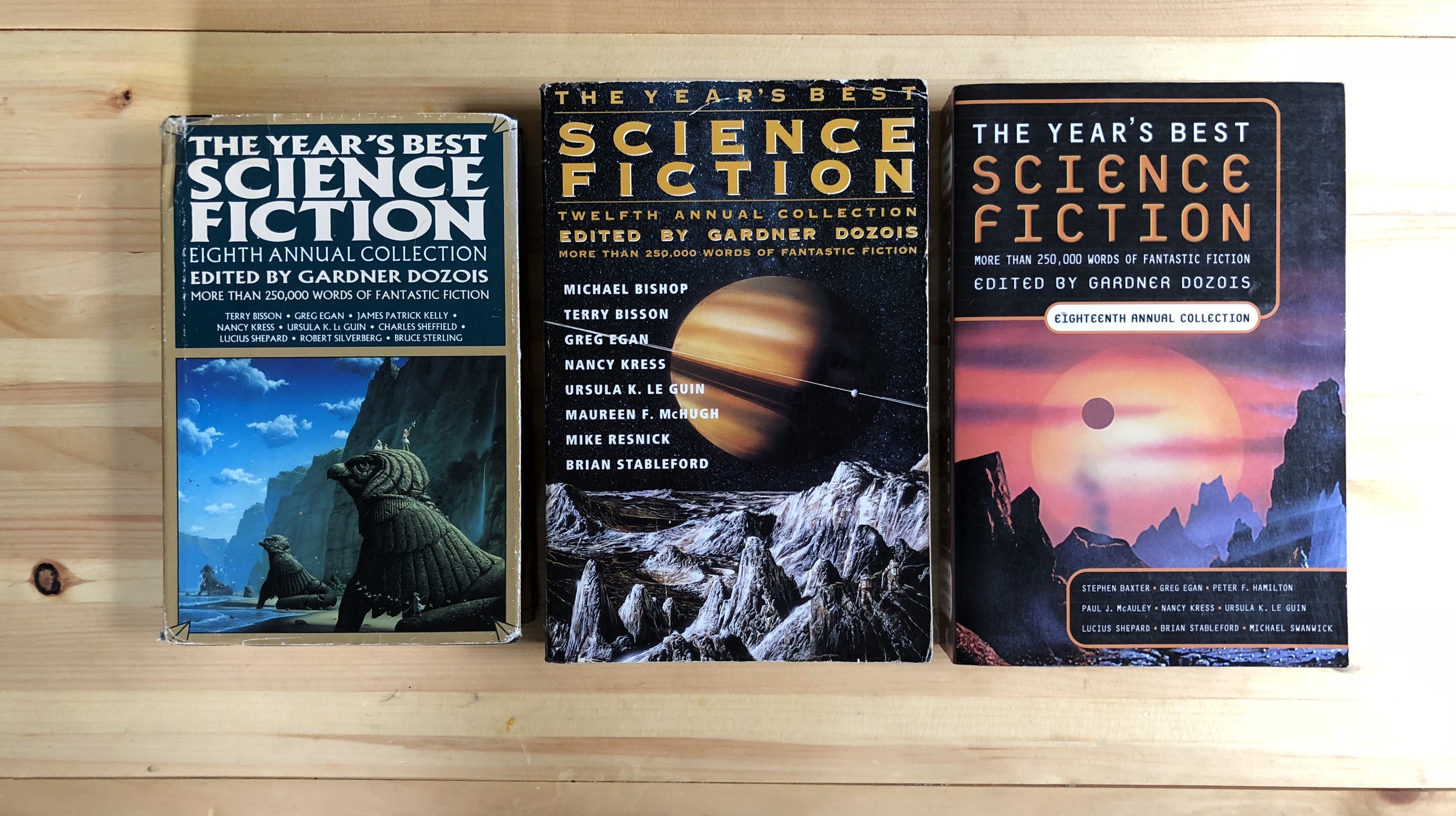Gardner Dozois got me into science fiction
/Word broke the other day that science fiction editor Gardner Dozois died suddenly. There's been a number of tributes to him from around the science fiction community, and for good reason: for decades, he's been one of the foremost forces in curating the cream of the crop that is the SF short fiction world, via his The Year's Best Science Fiction anthology series.
I wrote about the series a while ago for my Kirkus Reviews column, where I looked at his work as a writer and later anthologist, but since his passing, I've been thinking about how his work impacted me: he is really one of the ones that got me interested in modern science fiction in a very big way.
The re-release of Star Wars and Legends of Zelda: Link's Awakening were two big influences when it came to discovering science fiction and fantasy — later followed by Brian Jacques Redwall series — which in turn steered me towards some of the classics: Isaac Asimov, Arthur C. Clarke, Robert Heinlein, Frank Herbert, and others. But it was an anthology by Dozois that made me realize that science fiction wasn't a genre that rested entirely on the classics: there were plenty of new and brilliant stories being published every year. During a family trip to New York in 2000 — I think it was a wedding or funeral — we stopped at a Barnes and Noble. I vividly remember the bookstore, and coming across The Year's Best Science Fiction: Eighteenth Annual Edition, and thought back to the classic anthologies that I'd been reading. This seemed like a good way for my teenage brain to read up on a whole bunch of adventures, so that was my purchase for the day.
To this day, I haven't read all of it: (I read anthologies sporadically), but stories like Stephen Baxter's "On the Orion Line," and John Kessel's "The Juniper Tree" still stand out to me. I've picked up a handful of other Year's Best Anthologies over the years. Dozois always had an impeccable eye for curation, and beyond just the fiction that he included, there was a great survey of the output of the science fiction community: collecting the entire series and reading that alone would give you a great chunk of the genre's recent history.
I went back to the anthology time and again, and a couple of years later, I first subscribed to Asimov's Science Fiction, which Dozois edited. Again, I found his curation to be fantastic, introducing me to authors such as Allen M. Steele, Walter Jon Williams, Robert Reed, Charles Stross, John Varley, Karen Traviss, Tanith Lee, Charles Sheffield, Nancy Kress, Bruce Sterling, and so many others. I never really read through each issue cover to cover, but Dozois's short introductions to each story served as a good guidepost for what appealed to me the most: adventures in space, biotechnology run amok, robots, and the like.
Dozois's showed me that science fiction was alive and that it was not only something that was continually changing, but it was something that I could contribute to: I remember stuffing envelopes with terrible stories and mailing them off to Asimovs' and Dozois, only to get the standard form letter back. They were always polite messages that encouraged me to continue to try.
For a long time, I stopped reading Asimov's and short fiction in general, but it's something that I've returned to in recent months, but when I was at a bookstore, I'd often flip through his latest Years' Best Anthology to see who made the cut for the year, even sitting down and reading through a story or two if I was killing time.
There's a number of Year's Best Anthologies crowding the market now: Neil Clarke's Best Science Fiction of the Year series and John Joseph Adams' The Best American Science Fiction and Fantasy series are just two examples (and there's a ton of other, subgenre-specific ones that have popped up as well), but Dozois's loss leaves a Chicxulub-sized crater in the field. The genre and fandom community will move on, but that hole will never completely be filled, and he's a figure that will leave long-lasting changes on the genre for years to come.



